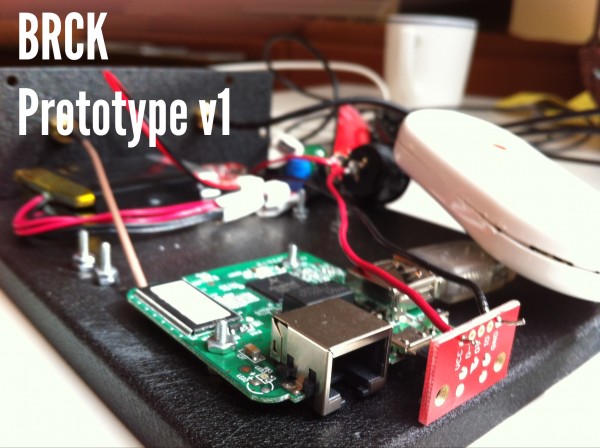Recently I wrote about the making of the BRCK here in Nairobi, and I alluded to some of the issues around doing hardware in Africa.
“Making things is hard. It’s harder in Africa. I can’t overnight an order of processors, boards or 3d printing filament here. There aren’t an over abundance of local fabrication facilities or tools, and the milling machine you find might be in disrepair and take you two days to calibrate. We’ve got our work cut out to create the right spaces for prototyping and small-scale fabrication on the continent.”
I just had another experience that underscores the difficulties.
FedEx called me with the news that a package we were waiting for had arrived. The true value of the components was listed on the package at $230. These were new plastic cases for the BRCK, as well as a couple modem and router components. The Kenya Revenue Authority decided that it actually should be valued at $300, and then charged 100% duty. To clear the package, we have to pay $300 (26,000 Ksh).
Before I go any further, I’ll state that I think it’s imperative that you build hardware like the BRCK, or Kahenya‘s new Able Wireless device, where it will be used. You need to build it close to the ground, where the working conditions, and the real pain of the problem is part of the product team’s life. For both Kahenya and the BRCK team, that means here in Kenya.
It’s hard to get the components that you need. Kahenya and I did backflips trying to getting 5 Raspberry Pi’s and cases ordered and delivered to Kenya. Similarly, we have issues with anything we need for the BRCK. The ripple effects on your business for this delay in time can be a big issue, it carries a lot of friction. If you want an Arduino kit or simpler components that you can’t purchase in Kenya, then your two options are; a) someone is coming from that country and can bring them in for you in their luggage, or b) you’re willing to pay a lot of money for FedEx or DHL to ship it in, then pay even more on duty.

This is the very earliest prototype of the BRCK. It’s made up of components that aren’t all found easily in Kenya.
So, not only is it hard to get the parts you need, the government has set up its regulation in a way that discourages local prototyping and even local manufacturing. The revenue authorities would rather make quick money off of a component import than more money later off of a manufacturing industry. I’d rather set up an assembly factory here in Kenya than one in another country, but that isn’t possible if component import isn’t changed.
ICT Ministers of Africa should note that in this rapidly changing world of tech, that the regulatory system needs to keep pace. If it doesn’t, it can produce a tech ecosystem that strangles innovation at the expense of short-term tax and duty.
If Kenya wants to pretend it can get to Vision 2030 without some changes in regulation for local companies, there will be some surprises coming.
